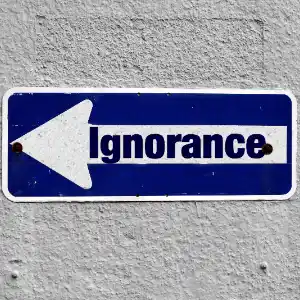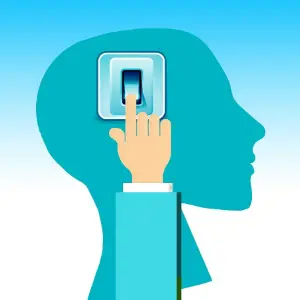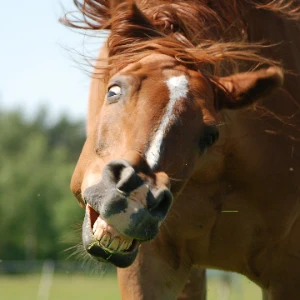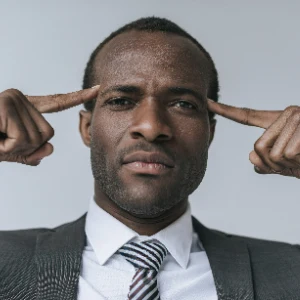Related Links
The Dunning-Kruger Effect - Climb Mount Everest? I can definitely do that!
Updated on 19th November, 2022
The Dunning-Kruger Effect Definition
Put simply, the Dunning-Kruger Effect is a cognitive bias wherein an individual's inexperience, low intellect, or low overall ability in a skill or topic makes them overestimate their competency when performing a task or analyzing a situation. We have all come across individuals suffering from this cognitive bias, and it stands out because someone under the spell of the Dunning-Kruger Effect is, in many ways, rather annoying. This is because the Dunning-Kruger Effect is synonymous with arrogance or overconfidence, and most people tend to avoid others who display these behaviors. In pop culture, the effect is often applied to describe people who do not have the awareness—or are not smart enough—to recognize their own stupidity, therefore having the unfounded confidence to contribute to situations and debates they know little to nothing about. Anyone can suffer from the Dunning-Kruger Effect, and there are many reasons one might fall victim to. For example, a world-class football player might believe they could effortlessly transition their talents into basketball and instantly become a star basketball player.

Their reasoning might be as simple as: "My ability to throw balls is unparalleled, so I should be able to excel in any sport that involves ball-throwing." In thinking so, the football player would not be aware of (and therefore not appreciate) the technical skill and experience it takes to become a top basketball player, only applying their own experiences and knowledge, assuming they will be sufficient.
In the words of British philosopher Bertrand Russel: "One of the painful things about our time is that those who feel certainty are stupid, and those with any imagination and understanding are filled with doubt and indecision." I'm sure there are many who are reading who can relate to this quote, perhaps after dealing with people who think they know more about you in an area you specialize in.
What is the Dunning-Kruger Effect?
When considering the Dunning-Kruger Effect and how it manifests in situations, it might be helpful to consider how the effect is typically mapped out through three distinct stages that take into account an individual’s level of confidence and wisdom:
• Stage 1 – High Confidence and Low Wisdom: Peak of “Mt. Stupid”
• Stage 2 – Low Confidence and Low Wisdom: Valley of Despair
• Stage 3 – High Confidence and High Wisdom: Plateau of Sustainability

The stages show that initially, when someone’s wisdom (knowledge and experience) is low, they can have high confidence in engaging in an activity or debate. This high confidence that occurs at low wisdom is named the Peak of “Mt. Stupid’’. If we move past the rude characterization, the peak of Mt. Stupid is where people suffering from the Dunning-Kruger Effect find themselves. It is essentially a combination of low levels of wisdom and high levels of confidence that create the building blocks for the Dunning-Kruger Effect to develop in someone’s mind.
This is the place that our football player mentioned earlier would be – he doesn’t know much about what it’s like to be a professional basketball player and so he isn’t aware of the knowledge, expertise, and experience it takes to play basketball at an advanced level. However, as someone becomes slightly more knowledgeable and experienced, we can see that their confidence decreases significantly. This stage referred to as the “Valley of Despair” occurs as someone becomes aware of just how much they don’t know about the field they are engaging with. For example, if the football player begins playing basketball and realizes how difficult it is to play effectively and how extensive the tactical thinking is behind various strategies, his confidence would plummet as he realizes how much he has to learn. This is a humbling realization and will instill respect for various professions in even the most deluded narcissists.

Beyond the “Valley of Despair,” individuals typically grow their confidence in conjunction with their level of knowledge and experience as they adopt a realistic understanding of their competency. In our example, the football player might learn more about basketball and improve his play. Now that he knows where his level of competency is, he is aware of how far he has come and how far he must go to reach the peak of confidence he was at initially. Once an individual becomes an expert in something, their confidence should begin to stop increasing and reach a plateau. This so-called “Plateau of Sustainability” entails a level of realistic and deserved confidence.
It is sustainable because the individual’s confidence won’t be significantly shaken; they are experts and are confident in their competency. Unlike the “Peak of Mt. Stupid,” where we find most of our Dunning-Kruger victims, these experts can engage with the topic in question with ability and knowledge, meaning they won’t encounter many difficulties when doing so. In the case of our football player, he would now be able to play basketball proficiently, meaning his confidence would be back up to where it was before he had it shaken by his initial poor performances. He would now have a newfound respect for the sport and hopefully would carry his experience forward, applying this respect to other fields he knows little about.
History of the Dunning-Kruger Effect
In 1999, researchers David Dunning and Justin Kruger conducted a study testing participants’ abilities in logical reasoning, grammar, and social skills. However, this wasn’t simply a test of the participants’ intelligence. The researchers also asked participants to complete a short survey afterward, asking them how they felt they had performed in the assessments.
As we may expect, the largest difference between the actual and perceived results were recorded in the participants who scored the lowest on their assessments – with the perceived results being higher than the actual results. Additionally, the study indicated that those with the highest degree of capability slightly underestimated their results. Following this discovery, the Dunning-Kruger Effect was coined. Other studies have confirmed these findings in various fields of knowledge, including mathematics, literacy, memory, and more.

Case Examples of the Dunning-Kruger Effect
Case 1: In 2007, an unemployed woman named Rachel Lester auditioned for the popular UK talent show X Factor. At the beginning of her audition, Rachel described her singing ability as “10/10” and claimed that she could sing better than Madonna, Cyndi Lauper, and Danii Minogue (a judge on the panel). When Rachel began her bizarre rendition of Sugar Walls by Sheena Easton, it became clear that she was none of the things she had claimed. With a flat, out-of-tune, strange singing style, Rachel stunned the judges into silence.
After her performance, she aggressively told the judges: “It was good, wasn’t it? Let’s face it.” She was immediately told otherwise. Simon Cowell told her she was “lazy, deluded and with no talent,” which resulted in the aggressive woman storming up to the judges and swearing at them. Rachel is a perfect – albeit rather dramatic – example of the Dunning-Kruger Effect because of her extreme overconfidence combined with her lack of ability. Rachel could not realize her own level of talent, which resulted in her reaching the ‘Peak of Mt. Stupidity,’ as evidenced by her performance.

Case 2: In 2016, Donald Trump achieved a surprising result when he won the presidential election by defeating his rival Hillary Clinton. Trump had made many claims supporting his own intelligence and capability, describing himself as a “stable genius” with an “extraordinary IQ score” (that he declined to ever release). Although Trump is undeniably a supremely practical businessman and charismatic politician, many examples indicate that he isn’t the perfect specimen of intellect that he claims he is.
Trump once confused the 9/11 terror attacks in New York with a convenience store, calling them the 7/11 attacks. Furthermore, Trump once made the bizarre claim that the United States had a total of “one million eight hundred and seventy thousand million tests” for the coronavirus. There are, of course, more examples. While Trump excels in certain avenues, it is an example of the Dunning-Kruger Effect that he is supremely confident in transferring his expertise into any field of knowledge. Simply put, no one can be as well-rounded as Trump frequently claimed he was.

Predictably, the students in the bottom 10th percentile of results predicted they would be in the 60th percentile. In contrast, the students who performed the best predicted themselves to achieve lower scores than they had. In completing this study, the researchers showed that this form of cognitive bias is not limited solely to logical reasoning and extends to anything that requires ability on the part of the individual.
A Beautiful Quote
- Norain
Questions and Answers
What is the Dunning Kruger Graph?
The Dunning Kruger graph
depicts the various stages of a person's confidence as wisdom improves over time. Initially, the graph shows extreme confidence due to common or less wisdom (peak of mount stupid). However, as the experience and knowledge improve, the confidence is shattered, and the Dunning Kruger curve takes a steep dip and reaches a low point (valley of despair). Then begins the long journey of attaining wisdom, leading to the confidence coming back gradually (slope of enlightenment). Finally, after a prolonged period of gaining knowledge, the person becomes an expert and reaches the plateau of sustainability.
What is intellectual humility? How is it linked to the Dunning-Kruger Effect?
Intellectual humility is acknowledging that something that you believe to be true might actually be wrong. It is pretty different from the traditional meaning of being humble. Instead, it relates to a form of thinking or a mindset that openly explores and opens up the possibility of making mistakes and reaching wrong conclusions. A person with intellectual humility will learn from past mistakes and the actions and words of others without the fear of challenging one's current beliefs and knowledge. Thanks to the Dunning-Kruger effect, we now know there is good reason to have intellectual humility. Then it is vital to monitor your confidence keeping in mind your current level of wisdom on a subject.